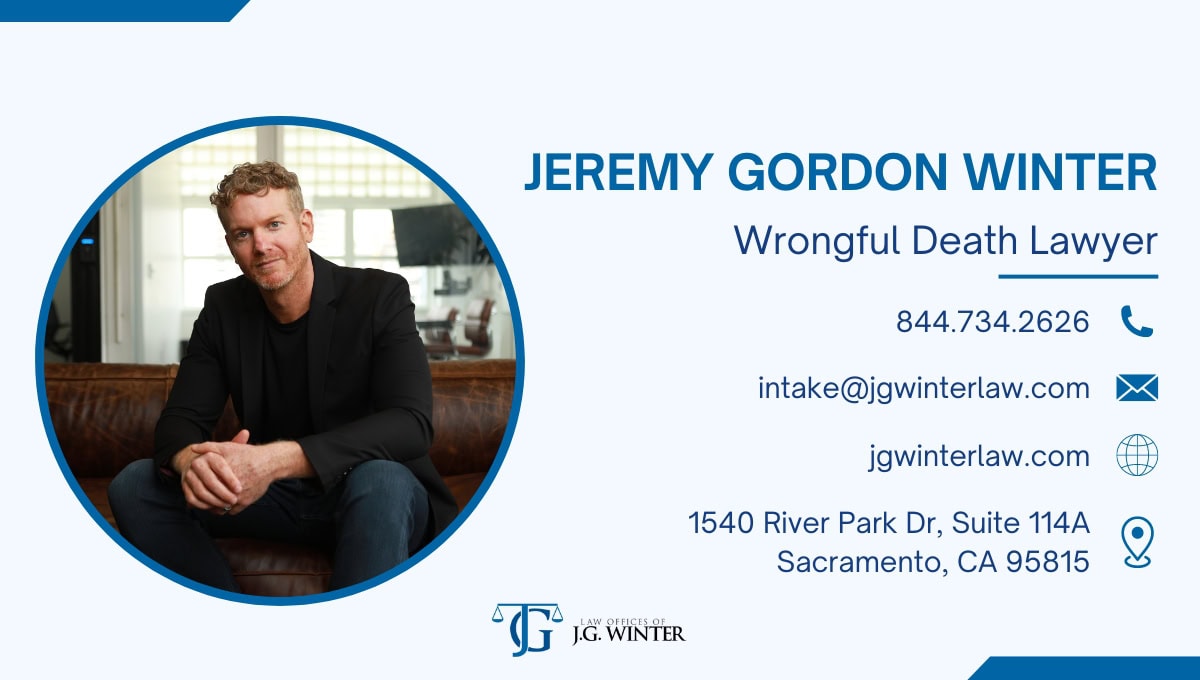Determining who receives the compensation money in a wrongful death lawsuit is an important detail for families seeking justice after losing a loved one. While money can never heal the profound pain attached to loss of life, it can provide a much-needed degree of security and peace of mind during a particularly difficult time. The compensation awarded from a winning lawsuit is typically distributed among the deceased’s closest relatives, as outlined by law. It can include spouses, children and sometimes parents or siblings, depending on state laws and the specifics of the case.
Read on to know how these determinations are made and who legally qualifies to claim such compensation, ensuring all survivors understand their rights and how the legal process is applied.
What is a Wrongful Death Claim?
A wrongful death claim is a legal action taken by surviving family members when their loved one’s death is caused by another person’s negligence or intentional act. It seeks to hold the responsible party accountable and provide appropriate financial compensation for losses such as loss of income, medical expenses and funeral costs. The specific laws governing wrongful death claims vary by state. Learn more about the wrongful death lawsuit.
Who Can Sue for Wrongful Death in California?
In California, the right to file a wrongful death lawsuit is reserved for specific family members and dependents and governed by the state’s intestate succession laws. The primary beneficiaries typically include the surviving spouse or domestic partner, children and grandchildren if there are no children. If these immediate family members are not present, the right to sue extends to other dependents, such as stepchildren or putative spouses with a credible belief in a valid marriage. Without these dependents, parents, siblings or other relatives may file the lawsuit as dictated by California’s intestate succession laws.
How is the Compensation Distributed?
The distribution of wrongful death compensation in California follows a structured order of priority, ensuring that the compensation reflects the deceased’s family structure and the legal definitions of dependency:
- Surviving Spouse or Domestic Partner: This individual receives the full compensation if there are no children, reflecting their primary legal and emotional connection to the deceased.
- Children: When children are present, they share the compensation with the surviving spouse or domestic partner, acknowledging their financial and emotional dependence on the deceased.
- Parents: If the deceased has neither a spouse nor children, their parents are the next in line to receive compensation, especially if they were financially dependent on the deceased.
- Other Heirs: In the absence of a spouse, children or dependent parents, siblings or other heirs defined by intestate succession laws become eligible for compensation. This expands the circle of potential beneficiaries to those who might have had legal or emotional ties to the deceased.
What Are the Factors Affecting Distribution?
Several factors can influence how compensation is distributed:
- Financial Dependence: Heirs who were financially dependent on the deceased might receive a larger share.
- Settlement Agreements: Parties might agree on a specific distribution method through settlement negotiations.
- Court Decisions: In cases of dispute, a court may determine the distribution based on the presented evidence and legal arguments.
Potential claimants must consult with an attorney specializing in wrongful death cases to navigate these legal complexities. An attorney with experience in this litigation genre can provide guidance on eligibility, legal processes, and how to ensure fair and just compensation according to California state law.
How Are Wrongful Death Lawsuits Paid Out?
There are two primary ways wrongful death lawsuit settlements are paid out:
Lump Sum
In a lump sum settlement, the entire amount awarded in the lawsuit is paid out in one payment, with full taxes levied and subtracted from the top-line settlement amount. This method results in less money received but can provide immediate financial relief for the family and allow them to cover immediate expenses such as funeral costs or outstanding debts.
Structured Settlement
A structured settlement involves a series of payments over time, often through an annuity. This method can provide a steady income stream for the family and offer long-term financial security.
Legal Framework for Wrongful Death Compensation
The legal framework for wrongful death compensation requires proving that the death resulted directly from another party’s negligence or intentional act, such as reckless driving or assault. Families must establish substantial evidence, including medical records and witness testimonies, to demonstrate the causal link and the defendant’s liability. Survivors must also prove damages incurred from the death, including both economic impacts like funeral costs and non-economic impacts like loss of companionship. Furthermore, claims must adhere to the applicable statute of limitations, which varies by state, making timely legal consultation critical to dissect and work through these complexities to secure rightful compensation.
How a Wrongful Death Attorney Can Help
During this difficult time, you don’t have to face the complexities of a wrongful death claim alone. Here’s how our lawyers can help:
- Understanding your rights: We will explain your state’s relevant laws and procedures.
- Gathering evidence: We will collect all necessary evidence to build a strong case, such as medical records, police reports and witness statements.
- Calculating damages: We assess your losses and determine the appropriate amount of compensation to seek.
- Negotiating with insurance companies: We handle all communication and negotiation with insurance companies on your behalf.
- Filing and litigating your case: We prepare and file all necessary legal documents and represent you in court if necessary.
- Providing emotional support: We offer guidance and support throughout the legal process, which can be especially important during a difficult time.
- Maximizing your compensation: We will fight to get you the maximum compensation you deserve.
Contact Us For a Free Case Consultation
Managing the convoluted steps of a wrongful death claim while grieving the loss of a loved one can be overwhelming. Let our experienced team shoulder the legal burden, allowing you to focus on healing.
A free consultation with our attorneys can provide clarity and direction. You’ll get an initial overview assessment of your case, understand all of your legal options and have all your basic questions answered without incurring any financial commitment.
We operate on a no-win, no-fee basis, also called a contingency fee arrangement. This means you only pay us if we successfully recover compensation for you. This eliminates any upfront financial risk on your end, making quality legal representation accessible to everyone.
Let us be your advocates during this difficult time. Contact us today to schedule your free consultation and learn how we can fight for the justice and compensation your family deserves.

FAQs – Who Gets the Money in a Wrongful Death Lawsuit?
Where does the money come from in a wrongful death?
In most wrongful death cases, the compensation comes from the at-fault party’s insurance coverage. This could be their car insurance, homeowner’s insurance or professional liability insurance, depending on the circumstances of the death. The compensation may come from their personal assets if the at-fault party is uninsured or underinsured.
What is the statute of limitations for wrongful death?
The statute of limitations for wrongful death varies by state, typically ranging from one to three years from the date of death. However, some exceptions may apply, such as in cases of delayed discovery of the cause of death. It’s crucial to consult with an attorney promptly to determine the specific deadline in your state and take advantage of the opportunity to file a claim in a timely fashion.
What damages can you claim for a wrongful death claim?
In a wrongful death claim, you may be able to recover various damages, including:
- Economic damages: Medical expenses, funeral and burial costs, lost income and benefits of the deceased, loss of inheritance.
- Non-economic damages: Loss of companionship, love, support, guidance and consortium.
- Punitive damages: These may be awarded in cases of gross negligence or intentional wrongdoing.



